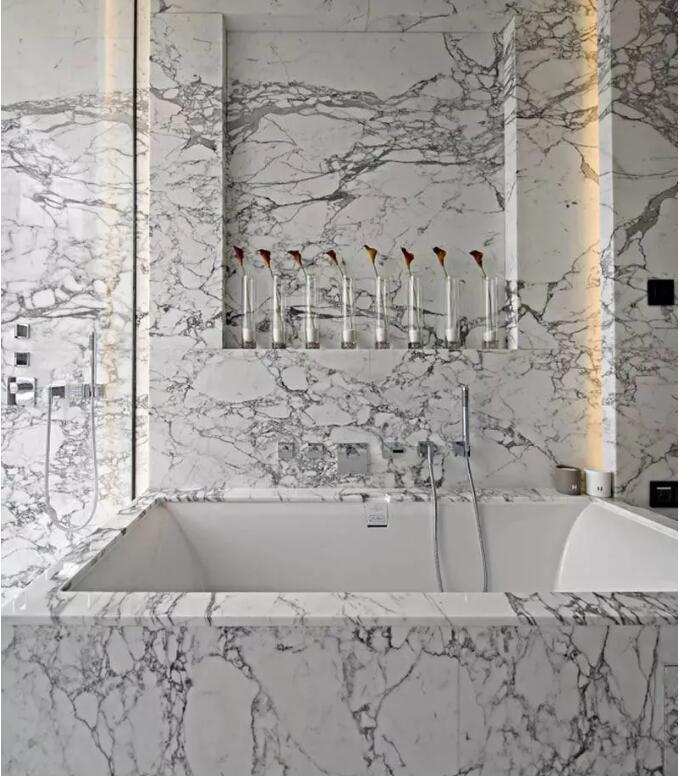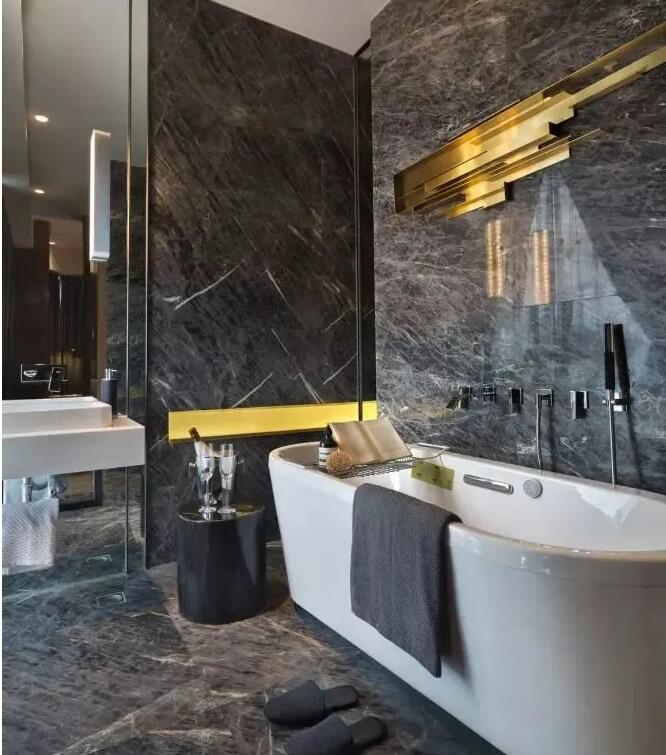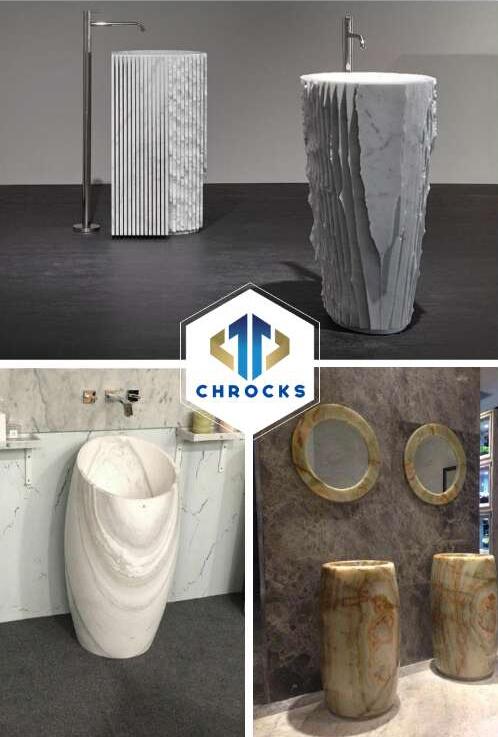People generally like to use marble as the decorative countertop of the washstand, while the floor and wall of the bathroom are decorated with relatively high-grade natural stones, which adds a bit of elegant style to the bathroom.


However, because the bathroom has the specific function of bathing and there is more water vapor, the stone laid is very vulnerable to pollution if it is not maintained properly.
Therefore, once you choose a stone to decorate your bathroom, you must design a complete maintenance scheme in advance to ensure that the stone maintains a natural and beautiful appearance for a long time and prolong its service life.
The maintenance plan shall include cleaning and disinfection of bacteria and molds from the stone surface. At the same time, the cleaning agent shall not corrode the surface of stone and prevent the regeneration of mold.


At present, most cleaning disinfectants used at home contain acid, alkali and other chemicals that are irritant and have a great impact on the surface and color of natural stone.
These chemicals will have adverse effects on the mineral composition inside the stone. In particular, most cleaning agents must stay on the stone surface for at least five minutes to play a cleaning role, and during this time, the cleaning agents have begun to damage the stone.
Therefore, experts recommend that the stone surface of the bathroom should be cleaned with a neutral detergent with pH value. Daily use of this cleaning agent will also reduce the production of bacteria and mildew.


Generally speaking, the general cleaning agent should stay on the stone surface for at least five minutes, so as to kill the mold on the stone surface.
Wipe the stone surface on the horizontal or vertical plane with a soft cloth to ensure that the stone surface is clean. Small area test shall be conducted before large-area cleaning.In addition, all bathroom stones must be treated with appropriate permeable protective agent, which will help to reduce the adhesion rate, so as to effectively prevent the growth of bacteria and mildew. After protection, it is also effective for the surface of cement mortar.
Because the penetrant protective agent can protect the indoor stone, experts suggest that the polishing agent with penetrant function can be used to protect the brightness of the stone surface after protection.


